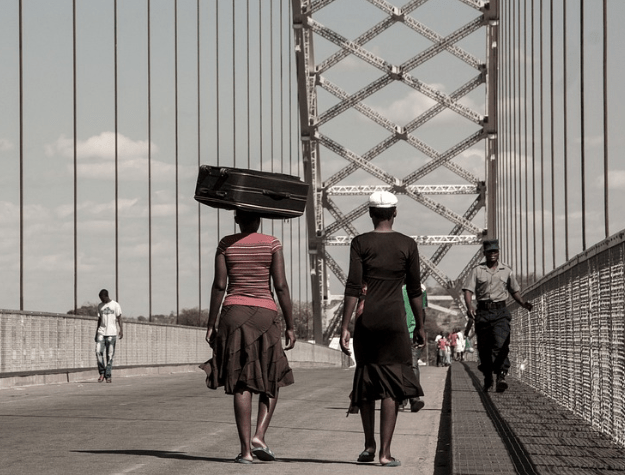A New Independent Nation Might Suffer These Challenges
A New Independent Nation Might Suffer These Challenges.
In This Review

The postal address acts as a mark that identifies the location of our home within the world. The final line is the name of our nation that extends that is, from Afghanistan to Zimbabwe.
However, for a small number of million people around the world that final line in the address can be an issue. It is the international post office that will not accept letters with the address Abkhazia, Trans-Dniester, or the Turkish Republic of Northern Cyprus.
Letters arrive after they are rerouted through different countries. You can open the drop-down menu of countries available on an online forum and they’re not likely to appear on the list.
The trio comprised of European statelets is one of the few states that exist in the world, mainly caused by war, that appear on maps but are not fully sovereign nation-states or members of international organizations.
They are, however, autonomous and relatively stable. Things go on as usual – taxes are paid and kids go to school. However, it’s slightly more complicated as compared to other places in the world.
Of the countries that have been contested, Taiwan is by far the most contested. Although it has been an independent state in all respects since 1949 China views it as belonging to its territory that “must and will be reunited”. It is recognized by less than 20 countries and is not a UN member.
SEE ALSO: How to Know if Your Country is For Sell
On the other side of the spectrum, there was the Islamic State group that proclaimed a state that straddled Syria and Iraq that was in existence for three years but was never recognized by any country.
Abkhazia, Trans-Dniester (also known as Transdniestria or Transnistria) as well as northern Cyprus are between the two. The three regions emerged from the conflict that is still unresolved.
The region that broke away from Abkhazia gained a victory in a war for secession from Georgia between 1992 and 1993 and declared its independence in 1999. In 2008 it was acknowledged by Russia as a sovereign state – which Georgia considers to be an occupying power as well as a few other states.
Trans-Dniester was also created when Trans-Dniester also emerged as the Soviet Union fractured into smaller states, and broke off from Moldova after a brief conflict in 1992.
Turkish Cypriots announced a new state earlier in 1983, which was 9 years following the crisis and war in which Turkey took over the northern part region of Cyprus. The UN is still on the watch for the division Green Line and reunification talks have not been successful.
Every state has a president and, even though they are still far from being recognized internationally There is no indication of their collapse.
This makes them “de facto states” – states that have their own territory, yet aren’t part of the global system.
In addition, each of these three breakaway regions has strong patronage — Russia for Abkhazia and Trans-Dniester and Turkey with regard to northern Cyprus.
The patron aids them in their efforts to stay afloat by offering financial and military support and even deploying troops.
They’d be less strong but they’d all maintain an identity that is strong and local, and aspirations to be independent.
The international community doesn’t consider these areas regularly – nor the issues at the root that cause them to be in a bizarre state of indeterminacy.
Interest in de facto states comes mostly from people who are enthralled with “places that don’t exist”, especially in the case of Abkhazia and Trans-Dniester.
SEE ALSO: Top 10 Religions In The World, Beliefs, History, Premise
The absence of formal recognition results in over-compensation when it comes to the making of official symbols.
They’ve developed quasi-state paraphernalia suitable for Freedonia – – the Marx Brothers’ fictitious state in Duck Soup – or the Republic of Zubrowka in The film by Wes Anderson. Grand Budapest Hotel.
Abkhazia produces exotic stamps, keeping an eye on collectors all over the globe.
Trans-Dniester is still sporting Soviet-era symbols in its symbolisms including the sickle and the hammer. It has its own currency, called the Trans-Dniester Rouble, which can only be used within the borders of its territory.
It is the only one of its kind in the world. It prints the plastic coin in different shapes. This makes them easy to identify for those who are blind and fetch a premium price on eBay.
While they might be eccentric, it’s not a good idea to label the trio “rogue states“.
However, that doesn’t mean they’re not in trouble. Human trafficking, as an example, is a huge problem in both the northern part of Cyprus in northern Cyprus as well as Trans-Dniester.
However, the impression that anyone visiting these locations might get is that of their regularity.
All have traffic light systems and traffic police, hospitals as well as other amenities that are states that are more “normal” states.
People in cafes stare at their phones – regardless of whether the coffee they sip isn’t brewed by a major brand such as Starbucks.
In spite of their state being a distant possibility of international recognition, they share the same ideals as those in other countries.
Businesses are interested in foreign trade Students want scholarships to study overseas.
The United States adheres to a variety of European standards freely. They do not have death penalties, and they each hold extremely democratic elections, even if the number of candidates is extremely restricted.
But, a city cannot exist on the basis of postage stamps by itself. It has to collect the tax revenues, and also ensure that the police force and the school system are in place.
This gives the world outside and those who could become mediators for conflict influence and leverage – something that is used in a limited way at the moment.
Assistance with health or education might be accompanied by appeals to cooperate in the extradition of fugitives for instance.
In a way, it is happening already to a degree that is already happening Trans-Dniester has secretly accepted its free trade deal with the European Union.
The government has also signed an arrangement that allows vehicles from Trans-Dniester are able to travel overseas with neutral-looking plates, which are issued in Moldova. The Trans-Dniester’s primary university can be enrolled internationally.
It may appear to be an old Soviet theme park featuring statues of Lenin and sickles and hammers, however, it’s actually moving in a different direction.
A former official once stated to me “My head is in Russia, but my legs are moving towards Europe.”
With a complete resolution of these disputes not in sight, this approach of incremental change and international cooperation provides a different path to take.
In the event that these three regions do not be integrated into their states of parenthood that are Cyprus, Georgia, and Moldova in the near future, then at minimum their residents – but not their governments – may be part of the global community.
SEE ALSO: Top 10 Most Intelligent U.S Presidents
Without recognizing them De facto states will be more reliable and better in line with their neighbors.
In the long term, the conflicts that are deeply rooted and have led to these de facto states may be less difficult to conquer.
Don’t keep your hopes up. They are sure to remain there for a long time to be.
This article was originally published by BBC News.


